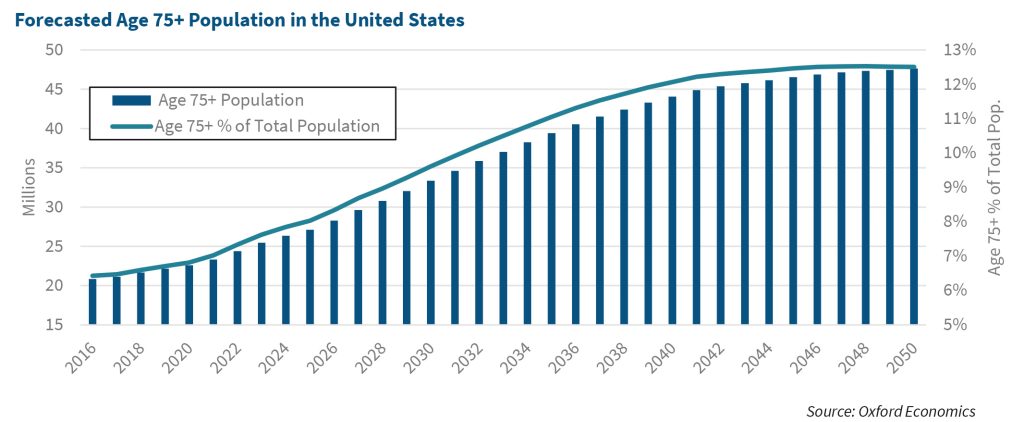The Impact of Aging Baby Boomers on the Housing Market
As the hands of time continue to turn, the Baby Boomer generation – those born between 1946 and 1964 – is moving gracefully into their retirement years. This significant shift in demographics is not a quiet change but rather one that echoes loudly across various sectors, with the housing market feeling a noticeable tremor. The aging of Baby Boomers is reshaping the real estate landscape in ways that are both observable and subtle. Let’s explore into the details of how this societal transition is influencing the housing scene.
A Surge in Demand for Age-Friendly Homes
One of the most fundamental shifts is the increasing demand for homes that cater to the needs of older adults. The Boomers, a group that once chased the dream of sprawling suburban homes, are now seeking properties that offer convenience, minimal maintenance, and accessibility. Homes that boast single-level living, with features like wider doorways, no-step entries, and easy-to-navigate layouts, are in high demand. These adaptations are not just a matter of preference, often they are requirements for individuals wishing to age in place comfortably and safely.
The Rise of Active Adult Communities
This demographic trend has also seen a rise in the popularity of active adult communities, designed exclusively for individuals aged 55 and older. These communities provide a plethora of amenities such as fitness centers, community gatherings, and maintenance services, which are alluring to those looking to enjoy their retirement years among peers in a community setting. As Baby Boomers continue to downsize, the demand for these specialized housing options is expected to swell, potentially leading to a housing boom in this niche market.
Market Shifts and Affordability Challenges
However, the aging Baby Boomer population is not just influencing housing types – they are also affecting the market dynamics. As a significant number of Boomers downsize or move to retirement living options, there is an expected increase in the supply of larger, family-sized homes. This could have a dampening effect on home prices in certain markets if the supply of these homes outpaces demand from younger generations.
Moreover, the Baby Boomers are part of a wealthier generation that reaped the benefits of long-term homeownership and rising property values. The substantial equity they’ve accumulated presents them with more options and financial leverage. For younger generations, especially Millennials and Gen Z, entering the housing market has been fraught with affordability challenges. The wealth gap is evident, as these younger potential homeowners may find themselves competing with financially established Boomers for smaller, more affordable homes.
Impacts on Rental Markets
The rental market is not immune to these shifting patterns either. With a considerable number of Boomers opting to rent rather than own in their later years – for the sake of flexibility, reduced responsibility, or financial strategy – there’s a consequent impact on the availability and pricing of rental properties. The increasing demand from this group may drive rental prices up, which again touch upon the issue of affordability for younger renters.
Expectations of Technology and Amenities
Another facet to consider is the Baby Boomers’ expectation when it comes to housing. This generation has shown confidence in embracing technology and expects it to be a part of their daily lives. Smart homes equipped with features that offer convenience, energy efficiency, and security are especially appealing to the tech-savvy senior. Also, Boomers desire amenities that promote social interaction and physical well-being, like community gardens, fitness areas, and areas for social gatherings, as these factors become paramount for an enriched quality of life.
Environmental and Economic Contributions
On the brighter side, the demand for smaller, efficient homes by Baby Boomers is contributing somewhat positively to the environment, as these home types typically have a smaller carbon footprint. Economically speaking, their investment in home improvements and renovations to suit their evolving needs stimulates the economy and provides business to contractors and home service industries.
Preparing for the Future
As Baby Boomers continue to shape the housing market, there’s a call for planners, developers, and policymakers to anticipate and cater to their needs. This involves creating a diverse range of housing options, investing in public transportation that supports independence beyond driving, and zoning laws that enable the development of age-friendly communities.
In conclusion, the aging Baby Boomer generation is indeed having a profound impact on the housing market. From fueling the demand for age-appropriate living options to influencing market dynamics and price points, these shifts highlight the importance of understanding and planning for the evolving needs of our society. As Boomers continue to break the mold in their retirement years, the housing market will surely keep adapting to meet the wave of change they bring forth.

